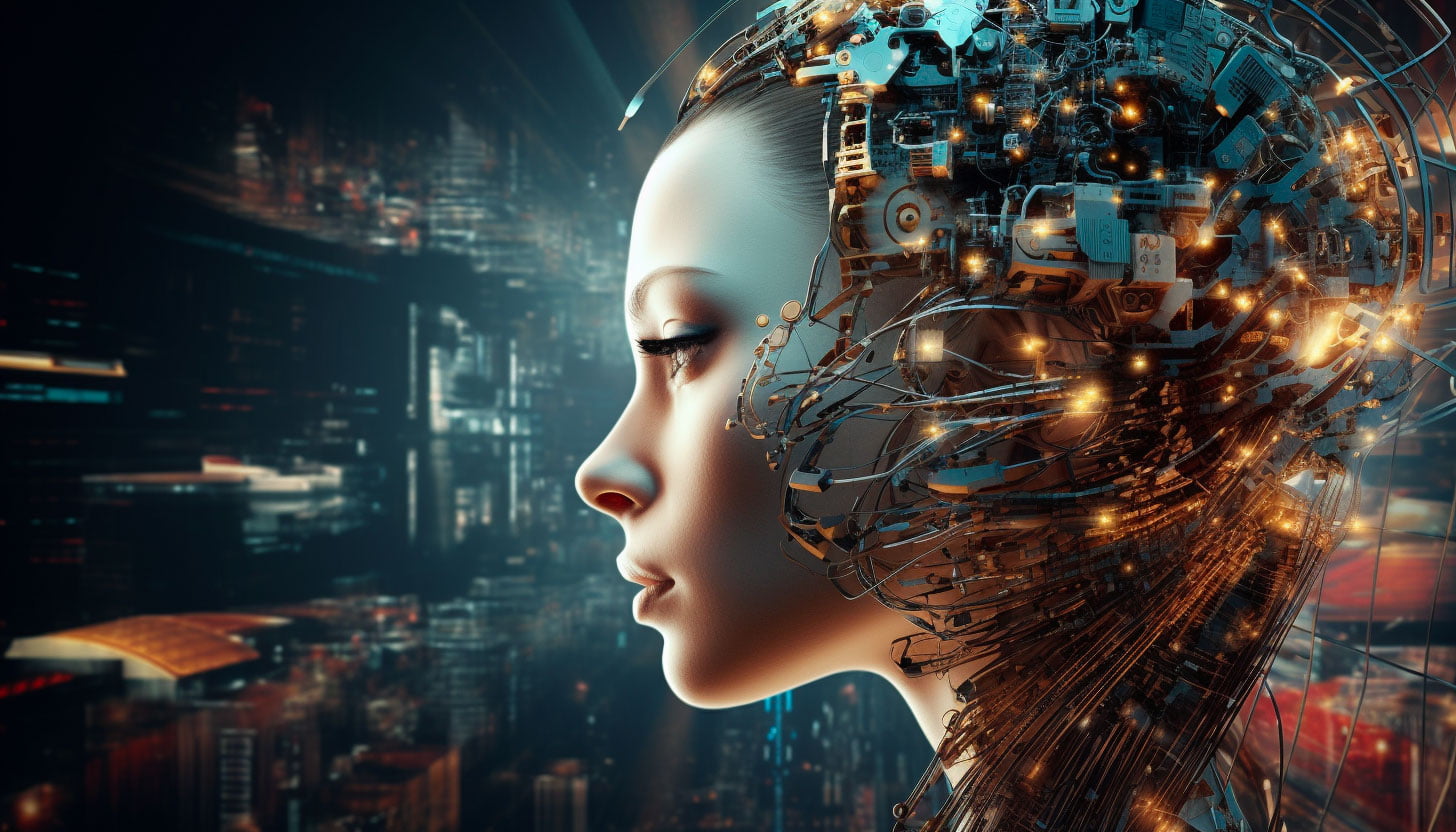Introduction
Generative AI, a subset of artificial intelligence, has been making waves in various industries, revolutionizing how we create, design, and innovate. With minimal human intervention, this remarkable technology empowers machines to generate content, whether it’s text, images, music, or even entire websites. In this article, we delve into the world of Generative AI, exploring its applications, impact, and potential future developments.
What is Generative AI?
Generative AI, short for Generative Artificial Intelligence, is a branch of AI that focuses on training machines to create or generate coherent and creative content. Unlike traditional AI systems that rely heavily on pre-programmed rules, Generative AI leverages the power of deep learning and neural networks to produce content autonomously.

Critical Components of Generative AI:
1. Neural Networks: Generative AI systems are built upon complex neural networks designed to mimic the human brain’s structure and functioning. These networks consist of layers of interconnected nodes that process and analyze data.
2. Training Data: To generate content, Generative AI models require vast amounts of training data. For instance, a text generator might be trained on a large corpus of text, while an image generator would need a substantial database of images.
3. Loss Functions: Loss functions help the AI system assess how well it generates content. They measure the difference between the generated content and the desired output and guide the model to improve its results over time.
Applications of Generative AI:
1. Art and Creativity: Generative AI has breathed new life into art. Artists and designers use AI to create unique digital paintings, sculptures, and music. Notable examples include the AI-generated portrait “Portrait of Edmond de Belamy” by Obvious and AI-generated music compositions by OpenAI’s MuseNet.
2. Content Generation: Content creators and marketers use AI to automate content production. This includes generating blog posts, social media posts, and product descriptions, saving time and resources.

3. Natural Language Processing (NLP): Generative AI has significantly advanced NLP applications. Chatbots, language translation services, and even AI-generated poetry are all made possible through the power of Generative AI.
4. Image and Video Manipulation: In the film and entertainment industry, Generative AI is used to create stunning visual effects, deepfake technology, and enhance video quality. It can even generate synthetic faces and characters for movies and video games.
5. Drug Discovery: Generative AI plays a critical role in drug discovery in pharmaceuticals. It can generate molecular structures and predict potential drug candidates, significantly speeding up the research process.
6. Personalization: E-commerce platforms and recommendation systems employ Generative AI to personalize user experiences. AI systems generate product recommendations and tailored content by analyzing user behavior and preferences.
Impact on Industries:
Generative AI has made a profound impact across various industries:
1. Cost Reduction: Businesses can automate content creation, reducing the need for human content producers and lowering operational costs.
2. Innovation: Generative AI fuels innovation by assisting researchers in generating new ideas, designs, and solutions, especially in fields like drug discovery and materials science.

3. Enhanced Creativity: Artists and creators can experiment with AI-generated content to push the boundaries of their creativity and explore new artistic avenues.
4. Personalization: Consumers benefit from personalized recommendations, making their online experiences more relevant and enjoyable.
Future Directions:
The future of Generative AI holds incredible promise:
1. Ethical Considerations: As AI generates more content, ethical questions arise, particularly concerning deepfakes, misinformation, and bias. Society will need to address these concerns and establish guidelines.
2. Advanced Language Models: AI language models like GPT-4 and beyond will likely have enhanced capabilities, enabling more natural and context-aware conversations.
3. AI in Education: Generative AI could revolutionize education by providing personalized learning experiences and generating educational content tailored to individual needs.
4. Scientific Discovery: Generative AI models will continue to accelerate scientific discovery, aiding researchers in fields such as climate science, astrophysics, and genetics.
Generative AI is a transformative technology
Generative AI is a transformative technology with far-reaching implications. It empowers machines to generate content and innovate in ways previously unimaginable. As Generative AI continues to evolve, it will reshape industries, enhance creativity, and contribute to scientific advancements. However, it also raises important ethical considerations that must be addressed to ensure its responsible use. The future of Generative AI holds immense potential, and it will undoubtedly continue to redefine how we create, communicate, and innovate.





